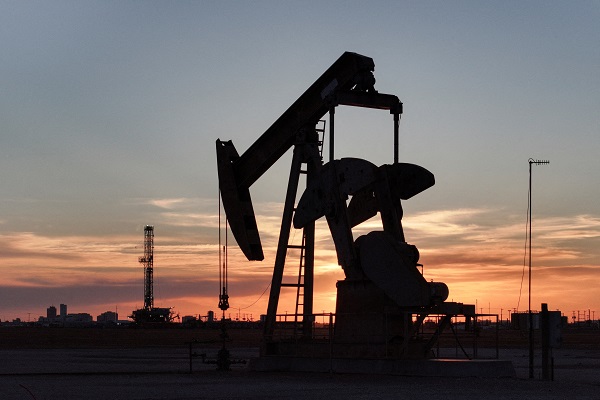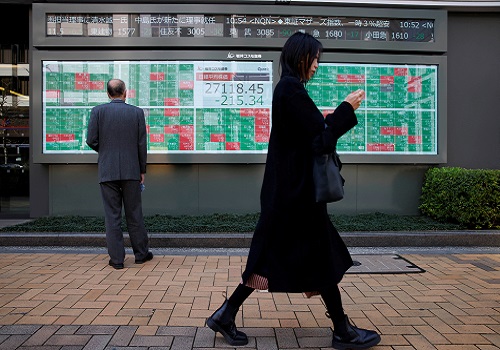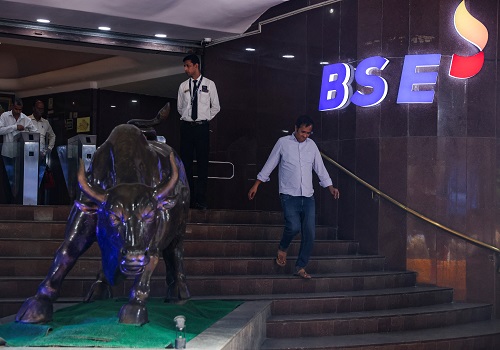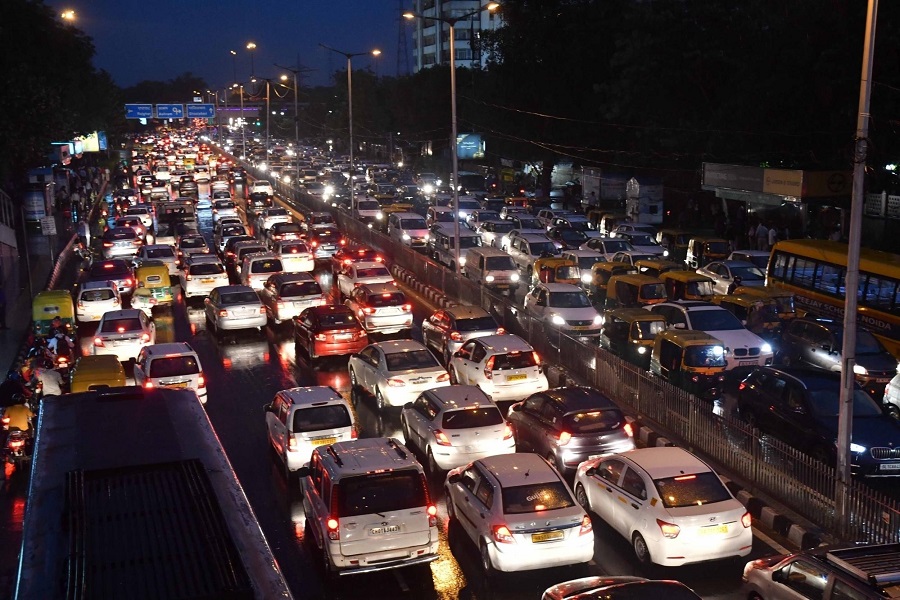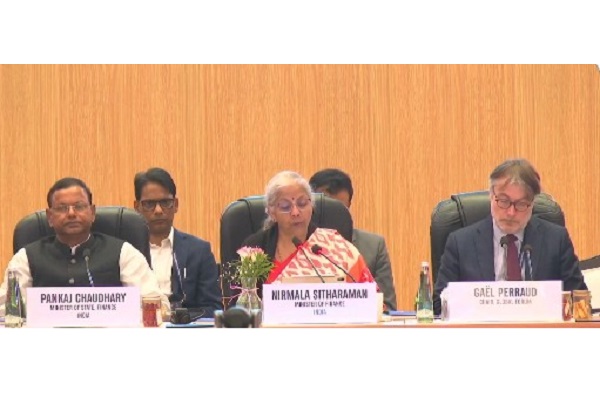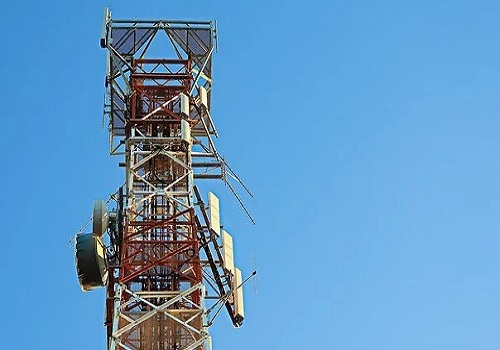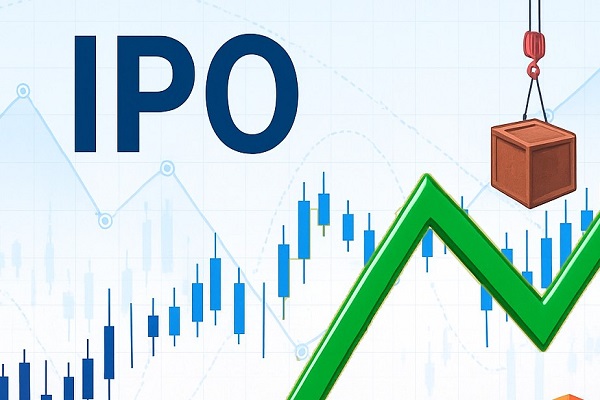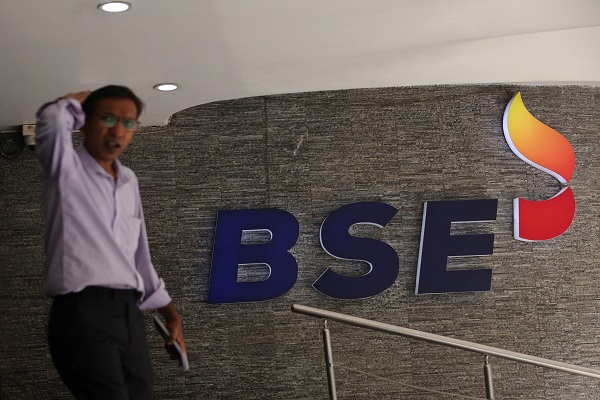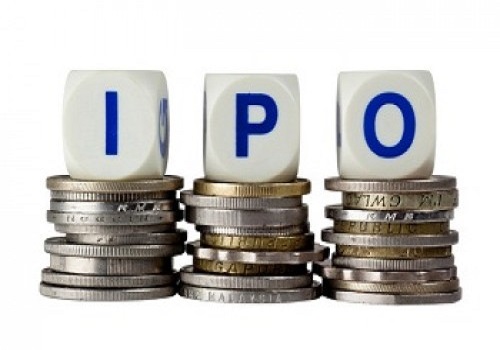JSW Cement coming with IPO to raise upto Rs 3807 crore

JSW Cement
- JSW Cement is coming out with a 100% book building; initial public offering (IPO) of 25,89,92,804 shares of Rs 10 each in a price band Rs 139-147 per equity share.
- Not more than 50% of the issue will be allocated to Qualified Institutional Buyers (QIBs), including 5% to the mutual funds. Further, not less than 15% of the issue will be available for the non-institutional bidders and the remaining 35% for the retail investors.
- The issue will open for subscription on August 7, 2025 and will close on August 11, 2025.
- The shares will be listed on BSE as well as NSE.
- The face value of the share is Rs 10 and is priced 13.90 times of its face value on the lower side and 14.70 times on the higher side.
- Book running lead managers to the issue are JM Financial, Axis Capital, Citigroup Global Markets India, DAM Capital Advisors, Goldman Sachs (India) Securities, Jefferies India, Kotak Mahindra Capital Company and SBI Capital Markets.
- Compliance Officer for the issue is Sneha Bindra.
Profile of the company
JSW Cement is among the top three fastest growing cement manufacturing companies in India in terms of increase in installed grinding capacity and sales volume from Fiscal 2015 to Fiscal 2025 (among the peers in terms of installed capacity and sales volume). It is among the top 10 cement companies in India in terms of installed capacity and sales volume as of March 31 2025. For the period from Fiscal 2023 to Fiscal 2025, its installed grinding capacity grew at a compound annual growth rate (CAGR) of 12.42% and sales volume (excluding JSW Cement FZC) grew at a CAGR of 15.05%, which is faster than the industry average CAGR of 6.23% for installed capacity and 8.12% for sales volume during the said period.
It is India’s largest manufacturer of ground granulated blast furnace slag (GGBS), an eco-friendly product produced entirely from blast furnace slag (a by-product of the steel manufacturing process), with a market share in terms of GGBS sales of 84.00% in Fiscal 2025. Its green cementitious products which include (i) products with GGBS, (ii) portland slag cement (PSC), (iii) portland composite cement (PCC) and (iv) others constituted 77.41% of its sales volume in Fiscal 2025. The company’s focus on manufacturing green cementitious products gives it the distinction of having a Clinker to Cement Ratio (which it defines as clinker consumed during a year divided by Cement Saleable Production) of 50.13%, in Fiscal 2025 and 46.60% in Fiscal 2024, which were lower than Peer Average of 66.43% in Fiscal 2024.
The company’s plants are strategically located in close proximity to limestone mines and are well-connected by road and/or rail to cost effectively source raw materials such as blast furnace slag, coal and gypsum. For example, its Nandyal plant, which is an integrated unit, is located one km from the JSW Nandyal limestone mine. Further, the grinding units in Vijayanagar, Dolvi and Salem are co-located with steel plants of JSW Steel Limited, which ensures cost effective transportation of blast furnace slag to these grinding units. Its remaining grinding units in east India are well-connected by road and/or rail network to regional steel plants.
Proceed is being used for:
- Part financing the cost of establishing a new integrated cement unit at Nagaur, Rajasthan
- Prepayment or repayment, in full or in part, of all or a portion of certain outstanding borrowings availed by the company
- General corporate purposes
Industry Overview
The Indian cement industry is the one of the largest globally only second to China. India contributed more than 7% of the world's installed capacity for cement production. In 2023-24, cement manufacturers added 43 million tonne (MT) capacity, the highest in the past 12 years, taking the total installed capacity to beyond 630 MT per annum (MTPA). For the first time in the past decade, cement utilisation levels crossed the 70% mark in 2023-24 to touch 72%. The demand for cement industry has been steadily growing in the recent years. In April 2024, cement volumes were 36.8 million metric tonnes (MT), up 1% YoY. In FY25, volumes are likely to grow by 7-8% to 455-460 million MT, supported by demand from the housing and infrastructure sectors. Volume-driven growth is witnessed primarily led by housing demand, multiple infrastructure projects for construction of roads, expressways, airports, metro rail, and strong uptick in rural demand led by the Pradhan Mantri Awas Yojna - Gramin.
The Cement Industry in India is estimated to have witnessed an investment of Rs 1300-1350 billion in the past five years (Fiscal 2021-2025E) with regards to adding new capacities, brownfield expansions, debottlenecking, and maintenance of existing plants. With healthy demand outlook and increased competitive intensity, the players, especially the large ones, are implementing sizeable capex over the next five years with the aim to capture the market share. Robust demand has bolstered the balance sheets of large players and mid-sized players with strong market presence, prompting them to expand capacity on the back of healthy cash accrual and credit profile.
Indian cement industry is likely to perform well in coming future as cement demand is expected to maintain its healthy momentum, primarily fuelled by the government's emphasis on infrastructure spending and its flagship housing initiatives. The Indian residential real estate sales touched newer heights in 2023, with a total of 4.1 lakh units, up 33% y-o-y. The strong momentum of 2023 is expected to continue with the uptrend in 2024 led by the prevailing sentiment of home ownership. Stable/reduction in interest rate as inflation remains under control, and escalation in property prices signal healthy growth in the residential segment. The Indian cement industry has lined up a capex of around Rs 1.25 lakh crore for FY25 to FY27 to meet the growing demand. During this period, the industry is expected to add 130 million tonne of cement grinding capacity, which is a fifth of the existing capacity. The investment will be driven by healthy demand outlook and the quest for market share, and strong balance sheets will keep the credit profiles of the companies stable. However, margins of industry are likely to be muted in near term on the back of lower cement prices.
Pros and strengths
India’s largest manufacturer of GGBS: The company is India’s single largest manufacturer of GGBS, with a market share in terms of GGBS sales of around 84% in Fiscal 2025. GGBS is manufactured entirely from blast furnace slag, which is a by-product of the steel manufacturing process. Its GGBS Volume Sold, its contribution to its overall sales and customer base has increased year-on-year. The demand for GGBS in India was estimated to be around 6.2 MMT in Fiscal 2025, and the demand for GGBS is expected to grow at a CAGR of 14%-15% to reach 11.9 MMT-12.5 MMT in Fiscal 2030. The company is well positioned to tap the growing demand for GGBS as it has a large, reliable and long-term supply of blast furnace slag.
Strategically located plants that are well-connected to raw material sources: The company currently has operations across the southern, western and eastern regions of India. In each region, its plants are well connected by road and/or rail to their respective raw material sources and key consumption markets as shown in the map below. Some of its plants are also equipped with in-plant railway sidings while other plants are located in close proximity to public railway sidings. One of the principal raw materials required to manufacture clinker is limestone. Its clinker and integrated units are located in close proximity to its limestone mines. Further, its units are well connected by road and/or rail which enables it to cost effectively source raw materials such as coal, blast furnace slag and gypsum for its operations.
Extensive sales and distribution network in India: The company has an extensive sales and distribution network comprising of dealers, sub-dealers and warehouses across it markets of operations to serve the retail demand for its cement and allied cementitious products (it trade sales). In addition, it sells its products to direct customers (its non-trade sales). As a lever to drive demand in its trade channel, it launched its influencer loyalty programme in Fiscal 2022 which is aimed at masons, contractors and architects. These individuals typically play a key role in the construction process and influence the choice of products used by its target customers. It rewards influencers with loyalty points for recommending its products which can be redeemed for benefits and incentives. Further, it has a strong in-house sales team of 269 sales officers as of March 31, 2025, that interacts with its dealers and sub-dealers on a regular basis and coordinates the inventory at its warehouses.
Benefit from its strong corporate lineage of the JSW Group: The company is part of the JSW Group, a multinational conglomerate with a portfolio of diversified businesses across various sectors such as steel, energy, maritime, infrastructure, defence, business-to-business e-commerce, realty, paints, sports and venture capital. As part of the JSW Group, it benefits from synergies with the long established “JSW” brand. In Fiscal 2025, five entities within the JSW Group (JSW Steel Limited, JSW Infrastructure Limited, JSW Energy Limited, JSW Paints Limited and JSW Cement Limited) had a consolidated revenue of Rs 1,950.64 billion ($22,824.56 million). The Group’s market capitalisation was over Rs 4,211.71 billion ($49,238.65 million) as of March 31, 2025. It also sources key raw materials such as blast furnace slag from JSW Steel Limited’s steel plants and power from JSW Energy through long-term PPAs for its operations.
Risks and concerns
Significantly dependent on JSW Steel and its subsidiaries: The company is significantly dependent on JSW Steel and its subsidiaries, its related parties, for the supply of blast furnace slag (92.93% of total blast furnace slag consumed in Fiscal 2025), which is a key additive raw material used for manufacturing green cementitious products such as ground granulated blast furnace slag and blended cement. It also purchases a part of its requirement of other raw materials such as fly ash and clinker from members of JSW Group. The loss of one or more such suppliers could adversely affect its business, results of operations, financial condition, and cash flows.
Dependent on distribution network for the sale and distribution of products: The company distributes its products through two channels - (i) the trade channel which refers to the sale of its cement and allied cementitious products to its end customers comprising individual home builders and contractors and other builders through a network of dealers and sub-dealers; and (ii) the non-trade channel which refers to the sale of all its products directly to large institutional customers. For its trade channel, dealers typically place purchase orders with it for the supply of its cement and allied cementitious products. These purchase orders specify the product, price per unit and other terms for distribution. As a result, its success depends on its ability to build and maintain relationships with its dealers and the frequency with which they place orders with the company.
Capital intensive business: The company required a substantial amount of capital to build and maintain its plants, operate its mines, purchase equipment and develop, implement new technologies in its new and existing plants and mines and facilitate its expansion plans. In addition to its existing projects, it is in the process of undertaking additional greenfield or brownfield projects to increase its Installed Grinding Capacity by 103.15% from 20.60 MMTPA to 41.85 MMTPA and clinker capacity by 102.48% from 6.44 MMTPA to 13.04 MMTPA, all of which would require substantial capital expenditure. It may require significant financing to support its growth strategies and expansion plans. Any failure to raise additional financing could have an adverse effect on its business, results of operations, financial condition and cash flows.
Business is subject to seasonal variations: The company’s business is subject to seasonal variations on account of lower demand for its products during the monsoon season. During the monsoon season, construction activity is curtailed and it may continue to incur operating expenses, but its revenue from the sale of its products may be delayed or reduced. It utilises this period of subdued demand to plan the annual shutdown and maintenance of its plants in order to improve efficiency during peak periods. Such seasonality in demand may lead to volatility in cement pricing which may require it to reduce its product prices to remain competitive in the market.
Outlook
JSW Cement is a manufacturer of green cement in India. As part of the JSW Group, the company is committed to sustainability and innovation in the cement industry. The company is the fastest growing cement manufacturing company in India in terms of increase in installed grinding capacity and sales volume. The company is India’s largest manufacturer of GGBS and has a proven track record of scaling up this business. On the concern side, the company is primarily dependent on JSW Steel and its subsidiaries, its related parties, for the supply of blast furnace slag. Moreover, it is dependent on its distribution network for the sale and distribution of its products. Any disruption in its distribution network could adversely affect its business and results of operations.
The issue has been offering 25,89,92,804 shares in a price band of Rs 139-147 per equity share. The aggregate size of the offer is around Rs 3600.00 crore to Rs 3807.19 crore based on lower and upper price band respectively. Minimum application is to be made for 102 shares and in multiples thereon, thereafter. On performance front, the company’s total income decreased by 3.27% to Rs 59,146.65 million in Fiscal 2025 from Rs 61,145.96 million in Fiscal 2024, primarily due to a decrease in its revenue from operations by 3.57% to Rs 58,130.71 million in Fiscal 2025 from Rs 60,281.03 million in Fiscal 2024. Moreover, the company has reported a net loss of Rs 1,637.69 million in Fiscal 2025 as compared to a net profit of Rs 620.13 million in Fiscal 2024.
The company is among the top three fastest growing cement manufacturing company in India in terms of increase in installed grinding capacity and sales volume from Fiscal 2015 to Fiscal 2025 (among the peers in terms of installed capacity and sales volume). It sells cement and allied cementitious products through the trade channel while it sells all its products (comprising cement, allied cementitious products, ground granulated blast furnace slag and clinker) through the non-trade channel. In the trade channel, it intends to continue growing primarily by expanding its distribution network of dealers and sub-dealers within its existing regions. It plans to complement this by increasing the demand for its products through its strategic and regional marketing and brand building initiatives and other initiatives including its digital marketing campaigns on social media and through tie-ups with sporting events.


.jpg)

